Plitonit: product varieties and advantages

The durability of the entire structure depends on the quality of the dry mix used in the construction, which is why the choice of chemistry should be approached with all responsibility. Plitonit products are capable of solving the most serious problems in the field of construction, therefore they are highly valued by the largest companies in Russia.
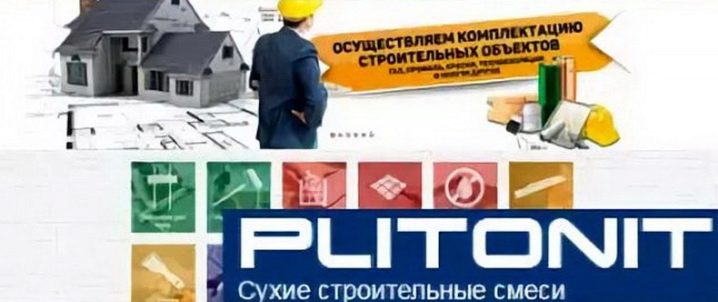
Peculiarities
Despite the wide popularity of Plitonit building materials, the company is constantly developing and continues to improve its products. Our own laboratory interacts with universities and chemical companies to discover new ideas and technologies. In addition, the organization constantly monitors the real needs of the market and therefore the assortment always contains the most demanded materials. Thus, the company can rightfully consider itself an executor of innovative developments that the scientific community wants to convey to the consumer.
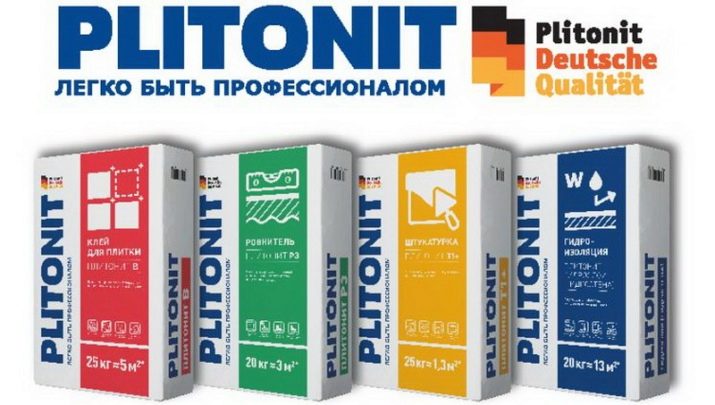
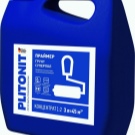
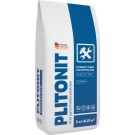
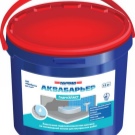
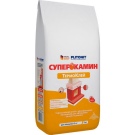
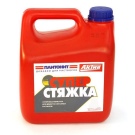
All products are created in conjunction with the German corporation for the production of materials for building chemicals MC-Bauchemie.
Employees of large construction companies note the following advantages of Plitonit products:
- versatility;
- durability;
- ease of use;
- justified price;
- wide range of;
- availability.
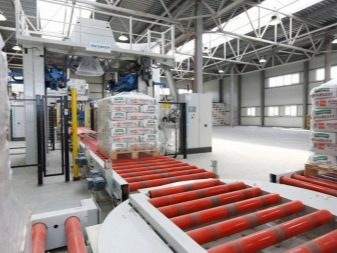
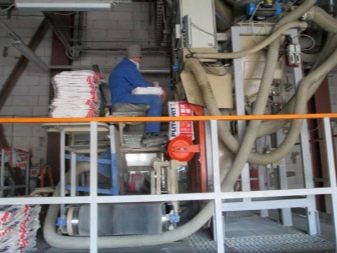
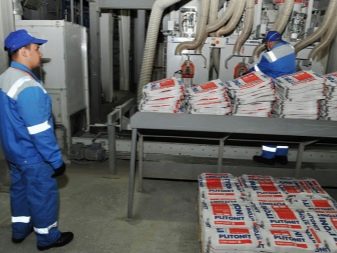
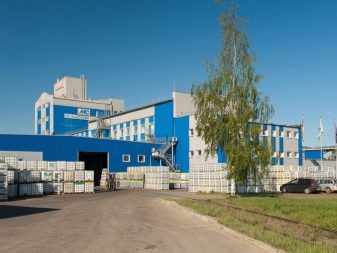
Thus, Plitonit products are not only the choice of professionals when performing construction work, but also a reliable option for novice finishers and repairmen.
Scope of application
Most Plitonit mixes and adhesives can be used both outdoors and indoors, both for light indoor repairs and for the construction of a multi-storey building.
The main areas of application of Plitonit building materials:
- cladding of coatings of any type;
- the process of leveling floors, walls and ceilings;
- facade work;
- masonry;
- construction of stoves and fireplaces;
- waterproofing works.
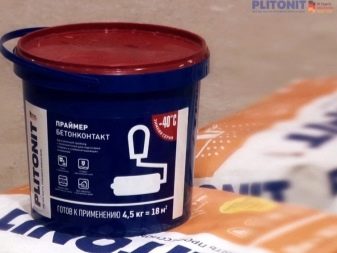
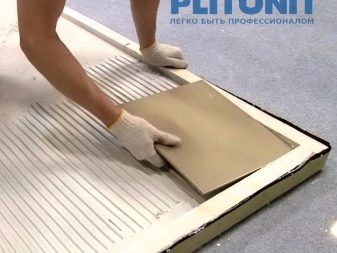
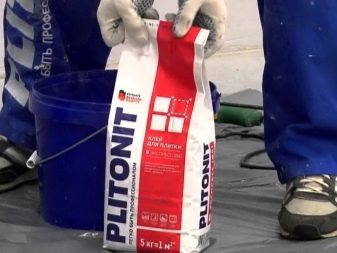
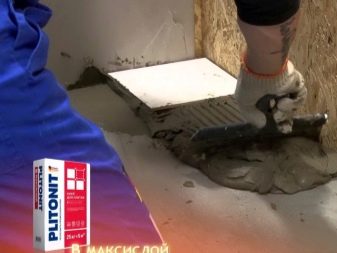
As you can see, Plitonit chemistry is universal, for which it is highly valued by representatives of various building structures.
Varieties
The Plitonit assortment includes all types of building materials. Below are the most popular products, their advantages and application features.
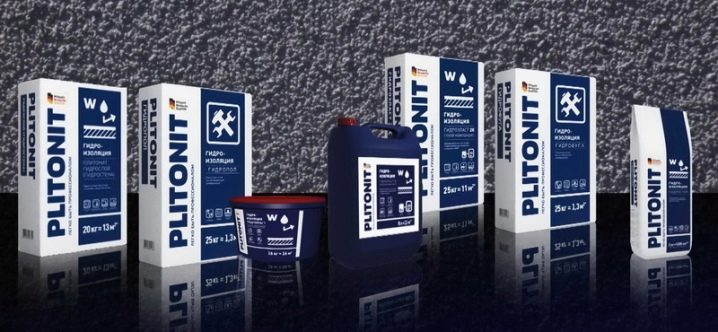
Tile adhesives
The quality of the tile adhesive directly affects the result of the cladding. If the work is carried out independently, then the choice of glue should be taken even more seriously. Buying low-quality material will make the work of an amateur long and painstaking. Plitonit tile adhesive is presented in a large assortment. The main advantage of the glue is its versatility. Each master, including a beginner, will be able to choose the most suitable option for a certain type of work.
Materials are on sale:
- for ceramic tiles and porcelain stoneware;
- clinker;
- marble and glass;
- mosaics;
- for facing facade stone;
- natural and basement;
- to create even tile joints.
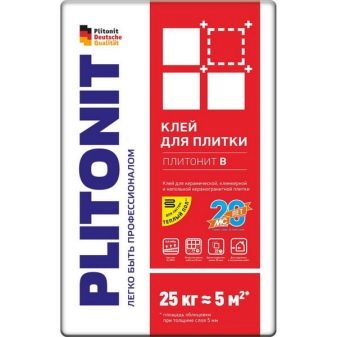
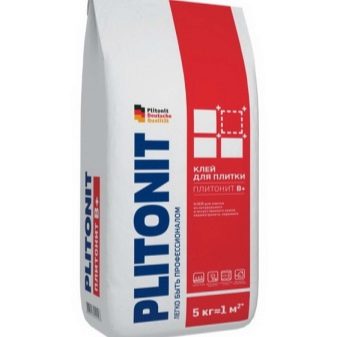
One of the popular varieties is Plitonit B glue. The material is designed for gluing tiles of any size. This option adheres well to surfaces made of concrete, cement, tongue-and-groove and gypsum boards, bricks, gypsum plasters.Suitable for heated floors and indoor pools.
Advantages:
- easy to use;
- plastic;
- when working on a vertical surface, the tile does not slide down.
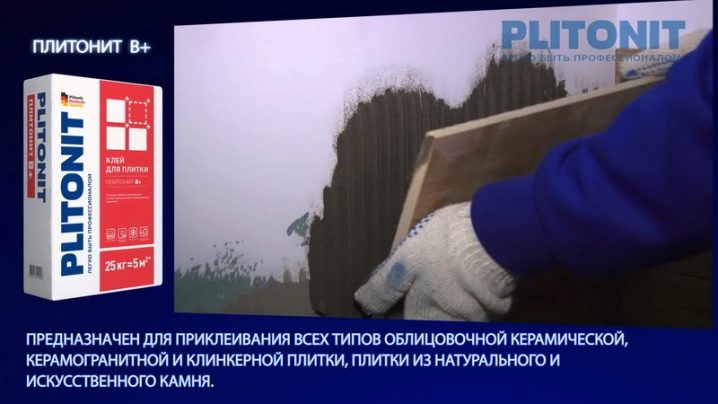
Waterproofing
The choice of waterproofing materials deserves special attention. Even if the main structures have high technical and operational indicators, poor-quality waterproofing will not fully ensure their functionality. Plitonit waterproofing materials are also widely known to the craftsmen of large construction companies.
The assortment offers mixtures:
- cement-based;
- two-component plastic waterproofing;
- polymer-based mastic;
- waterproofing tape;
- adhesive for tiles in the pool "Aquabarrier".
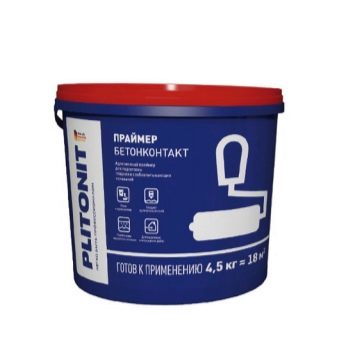
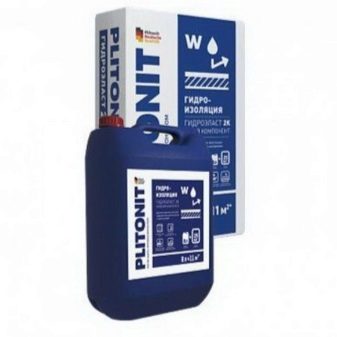
One of the most popular products is the HydroStop cement mix. Suitable for eliminating leakage in concrete, metal and plastic materials. Can be used to repair damaged concrete parts. The product has permission from special services for contact with water.
Product advantages:
- it will take 1.5-10 minutes to harden;
- high indicators of strength and adhesion;
- prevents shrinkage;
- application is possible during operational repair.
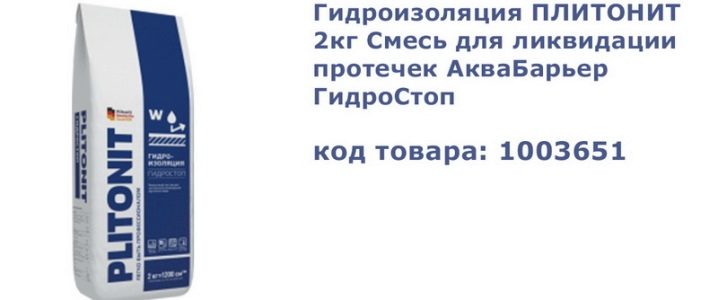
If work needs to be carried out by layer-by-layer application, then a dry mixture should be used. It is lightly covered with a damp surface. If the work is carried out according to the filling technology, then a plastic solution is used, which is obtained by combining a dry mixture (1 kg) and water (0.17-0.19 l). After mixing, the mixture will be a homogeneous mass, it can be used within 2.5 minutes.
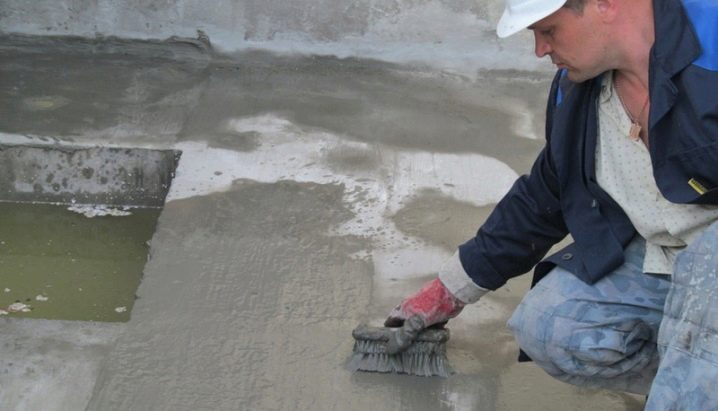
Another fairly common waterproofing material is GidroElast mastic. It is an elastic product created on a polymer basis. It is used for seamless protection in rooms with high humidity. The area of use is wide, since the material is suitable both for standard concrete, plaster and brick, and for non-moisture-resistant surfaces, for example, drywall.
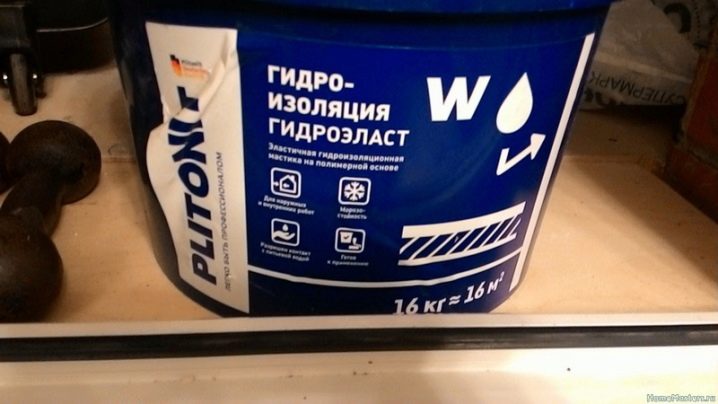
Usually masters use HydroElast mastic to eliminate gaps where strong loads do not occur, more often these are the areas where water pipes exit, corner joints of parts.
Advantages:
- has permission from special services for contact with water;
- elimination of holes up to 0.8 mm is possible;
- versatility - suitable for both internal and external waterproofing;
- vapor permeability.
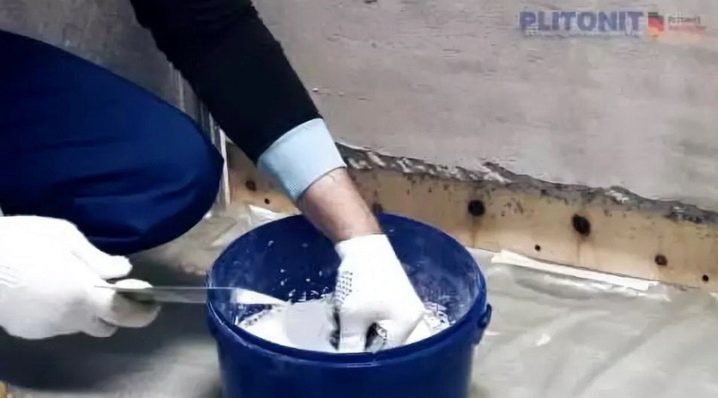
When the product dries, it can be seen with the naked eye. If you need to carry out work on the walls of the bathroom, then 1 layer 0.5 mm thick is enough. If it is necessary to waterproof the bathroom or shower floor, 2 layers of 1 mm thickness will be required. If the mastic is used for a private pool, then 3-4 layers of 2 mm thick should be applied.
Mixes "Superfireplace"
The construction of fireplaces and stoves is a long and demanding process. If you do not provide for all the installation stages and do not purchase high-quality masonry mortars, then the future heating device may lose its durability and even safety. Dry building mixtures "SuperKamin" are recommended by many professionals.
Product advantages:
- heat and heat resistance;
- high indicators of strength and adhesion;
- moisture resistance;
- crack resistance;
- ease of use;
- low consumption.
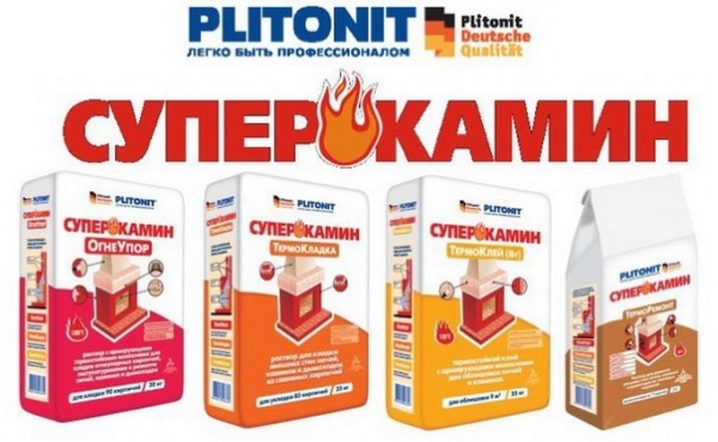
The products are represented by several products that are used for different types of work:
- "ThermoGlue": for facing stoves and fireplaces;
- OgneUpor: mortar for laying heat-resistant bricks and plastering;
- "ThermoKladka": mortar for laying external walls of equipment;
- "ThermoClay masonry": for the external masonry of clay bricks;
- "ThermoRemont": for the repair of equipment made of clay;
- "Thermo Plaster": for plastering.
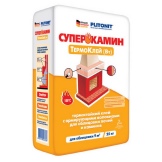
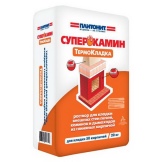
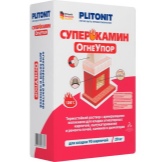
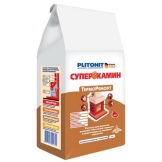
Equalizers
Leveling the floor is the most important task in renovation work. The service life of the flooring and its appearance depend on a correctly executed base.Floor leveling mixtures are presented in several varieties that differ in the field of application. The most popular of them are P1, P2, P3, Universal. The Plitonit P1 leveler is available in Pro and Easy versions. The materials are recommended for leveling horizontal concrete coatings, it is possible to use it under cladding or a self-leveling mixture.
Advantages:
- wear resistance;
- finished result in 12 hours;
- possibility of application without floor covering;
- resistance to cracking.
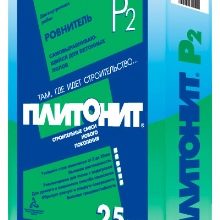
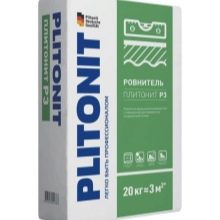
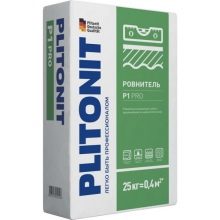
It is recommended to apply a layer of 10-50 mm during work; a thickness of 80 mm is possible in the recesses. During operation, the material can withstand temperatures up to 100 degrees.
The Universal leveler is highly appreciated by specialists. It is a mineral mixture used for smoothing concrete floors. It is possible to carry out works in dry and damp rooms. Application without floor covering is not permissible.
Advantages:
- resistance to cracking;
- hardens quickly - ready for use in 3 hours;
- high mobility;
- the possibility of using in the "warm floor" system.
When leveling, it is recommended to apply a layer from 2 to 80 mm, in the recesses 100 mm is possible. The maximum temperature is +50 degrees.
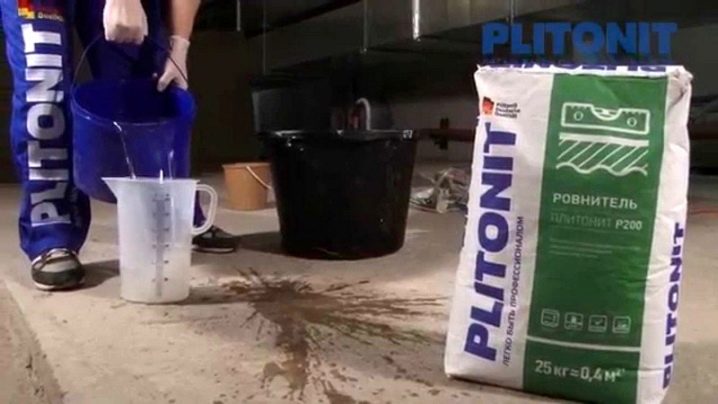
Plasters
Plaster is the first stage of any repair work after broaching communications and electricity. Both walls and ceilings need a rough finish. Also, plaster is used for the base for decorative elements.
Plitonit offers the following types of plaster mixes:
- "GT";
- RemSostav;
- "T Gips";
- "T1 +".
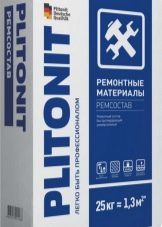
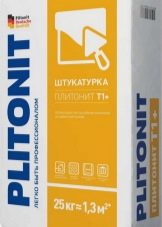
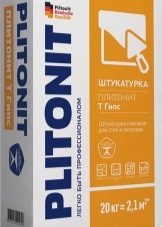
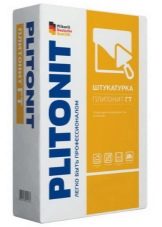
RemSostav plaster is a mixture for vertical and horizontal coating. When performing work, it is recommended to apply a layer of 10-50 mm. It can be used to restore the surface in the formation of potholes.
Advantages:
- after application, it is possible to proceed to the next stages after 3 hours;
- resistance to cracking.
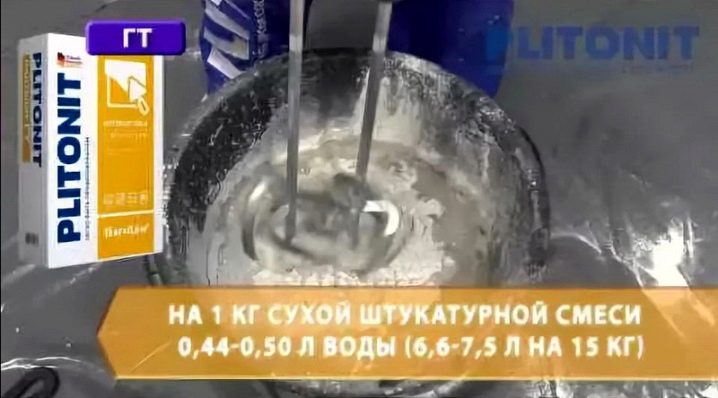
To prepare the plaster, you need to mix 0.13-0.16 liters of water with a kilogram of dry mix. Next, mix the mass for 3 minutes with an electric mixer. The solution is ready to use, but must be used within 30 minutes.
T1 + plaster is used for leveling walls and filling joints. Work can be carried out in dry or humid rooms, it is possible to use the mixture outside. The mortar interacts well with any type of surface - brick, concrete, reinforced concrete.
Advantages:
- low consumption;
- frost resistance;
- possesses water-repellent characteristics;
- has high plasticity.
When used, one layer can be 5-30 mm thick. It is possible to use a mechanized application method. Excellent for facades.
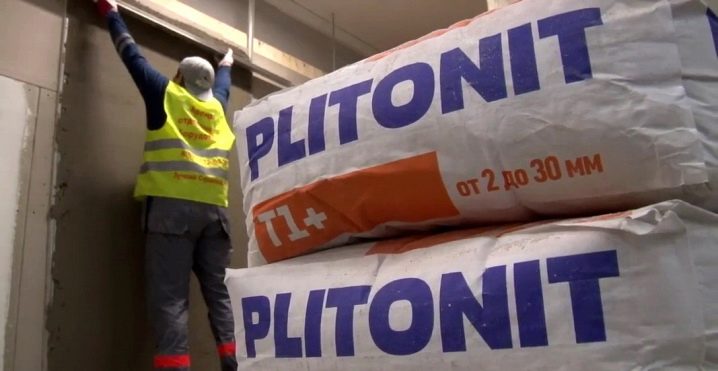
Primer
The success of finishing and decoration work depends on the primer. The quality of materials determines not only the appearance of the room, but also ensures the durability of the chosen design.
The company offers the following soil types:
- "BetonKontakt";
- SuperContact;
- "SuperPol";
- "Ground 1";
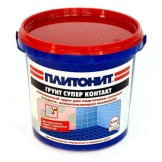
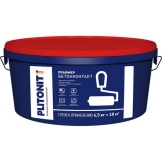
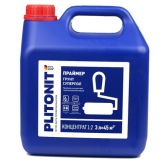
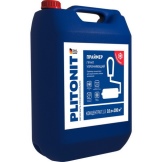
- "2 Elastic";
- hardening;
- ready-made soil;
- "AquaGrunt".
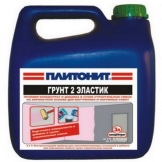
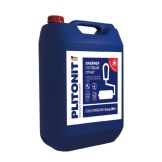
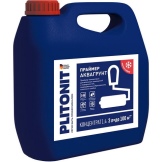
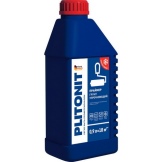
Particularly popular is "Ground 1". The products are used for priming and leveling surfaces. Thanks to the application of the primer, the walls of the room absorb less water and prevent the formation of dust.
Soil advantages:
- the ability to perform work in the open air;
- can be frozen during storage.
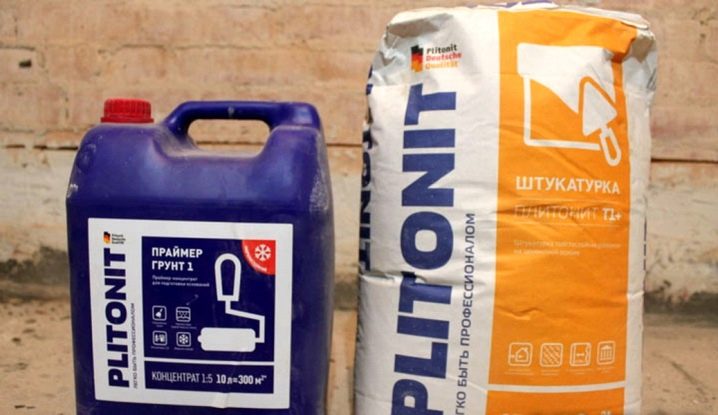
Use a primer when working on walls using a roller, brush or spray. When priming under the self-leveling floor, pour the solution and distribute it evenly with a roller. In the case of rapid absorption and rapid drying, the priming step must be repeated. Highly appreciated by construction professionals "AquaGrunt". Its application is also universal. This option reliably reduces the water absorption of materials, adheres well to the base, and prevents the occurrence of fungi and mold.
Other benefits:
- ideal for use in wet rooms;
- possesses frost resistance.
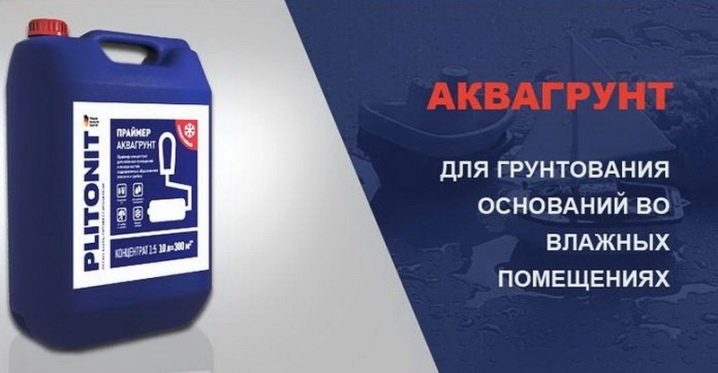
The operation of the soil is possible at an air and base temperature of +5 degrees. If the work is carried out outdoors, then the processed material must be protected from precipitation until it dries.
Joint grout
Grouting is the final stage of tile laying. The great importance of this process is explained not only by its practicality, but also by its decorative function. Plitonit offers products based on epoxy, elastic options, grouting for swimming pool, terrace, balcony, facade.
Varieties:
- Colorit Fast Premium;
- Colorit Premium;
- "HydroFuga";
- "Grout 3".
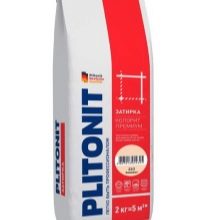
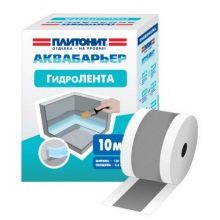
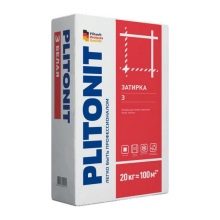
Colorit Premium grout has a wide color palette - white, black, colored, cocoa, ocher, pistachio - only 23 colors.
Product advantages:
- versatility of application;
- color protection technology;
- perfect smoothness;
- effective protection against contamination;
- resistance to cracking.
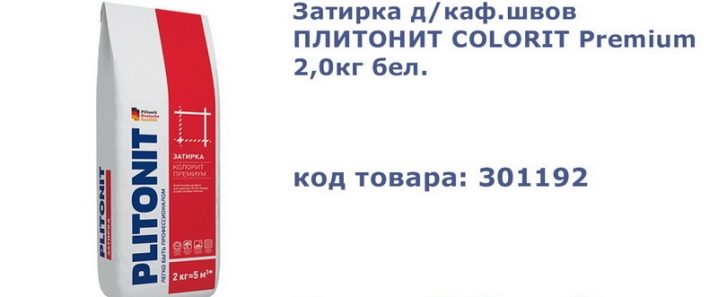
When applying grout, clean the surface, apply the mixture to the coating with a rubber spatula or float, and fill the joints completely. After 10-30 minutes, gently wipe the surface diagonally to the mesh of seams. Carry out the procedure several times. At the final stage, clean the surface from dried deposits with a dry cloth.
Putty
The use of putty materials during construction or renovation allows you to level the surfaces of the premises, due to which the decorative coating acquires an aesthetic appearance. The Plitonit assortment offers the following types of putties: Kp Pro, K and Kf. Plitonit K putty can be used both indoors and outdoors. Suitable for smoothing concrete ceilings and cement plaster.
Advantages:
- creates a flat surface;
- provides simple operation;
- has a low consumption;
- possesses moisture and frost resistance.
After filling, the coating dries up in a maximum of 6 hours. After preparing the mixture, use it within 4 hours. It is recommended to take 0.34-0.38 liters of water per kilogram of putty, and 6.8-7.6 liters per 20 kg.
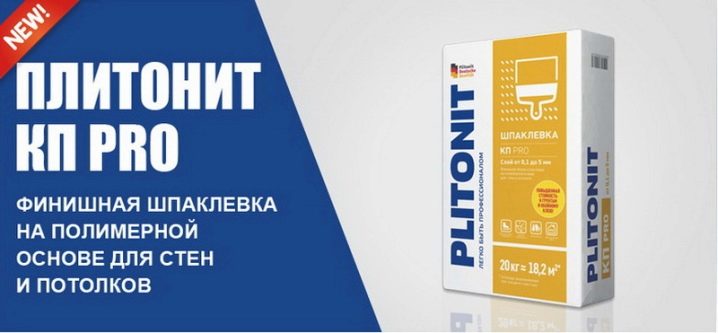
Masonry mixtures
The masonry mix allows you to connect various building materials such as floor slabs, bricks, blocks and create a monolithic structure. Plitonit masonry mortars are used to combine aerated and aerated concrete materials.
The following types are offered:
- glue "Plitonit A";
- "Masonry Master";
- "Winter Masonry Master".
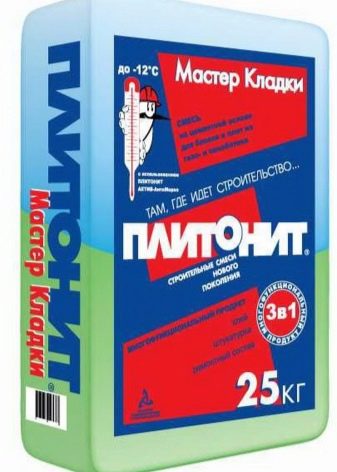
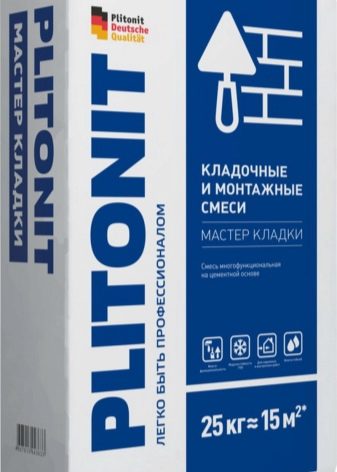
Great preference is given to the mixture "Master of Masonry Winter". The cement-based mortar is multifunctional, it can be used both inside and outside the construction site. The advantage of the mixture is that it is suitable for use as an adhesive, plaster and repair compound. A kilogram of the mixture must be diluted with 0.18-0.20 liters of water, 25 kg - 4.5-5.0 liters. The prepared solution must be used in the first 1.5 hours.
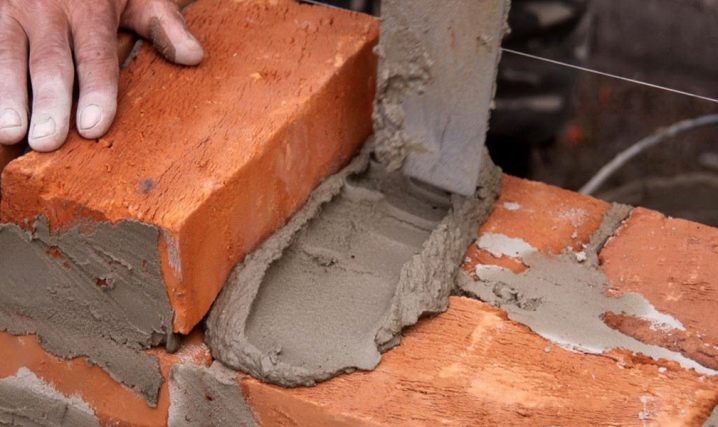
ThermoFacade system
Dry mixes "TermoFasad" are used to fix heat-insulating materials when performing facade work and constructing a layer of plaster on top of it.
Advantages:
- the result is reliable thermal insulation;
- increases the speed of construction work;
- provides protection against mold and mildew;
- increases the service life of the facility under construction;
- has high sound insulation;
- prevents the appearance of efflorescence on the facade;
- provides protection to the seams between panels;
- allows you to recreate any design solutions.
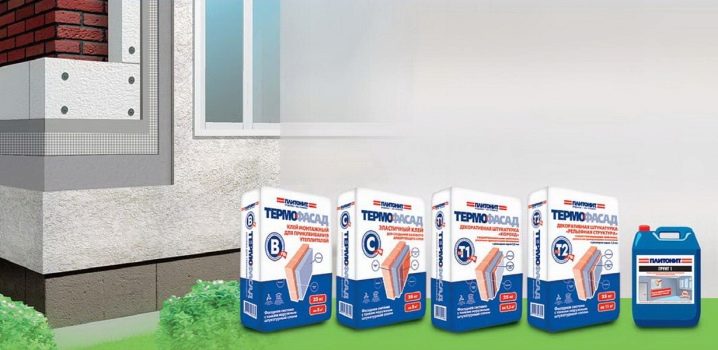
Plitonit offers several types of products, among which each master will be able to choose the most suitable option for a specific type of work. The assortment includes adhesives for insulation, application of a primary reinforcing layer, structural and decorative plaster with a water-repellent effect.
Additives for solutions
Using specialty supplements is a good option if your budget is tight. Cement-sand mixtures, grinders and other materials increase the reliability of building mixtures.
Advantages of Plitonit mortar additives:
- provide convenience and speed of work;
- contribute to high plasticity;
- accelerate or slow down hardening;
- make the mixture frost-resistant;
- provide better and more durable results.
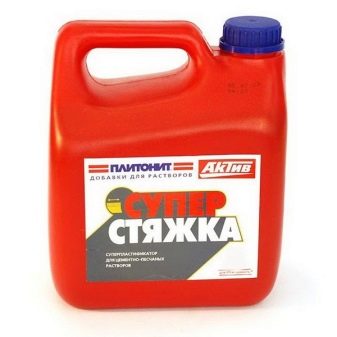
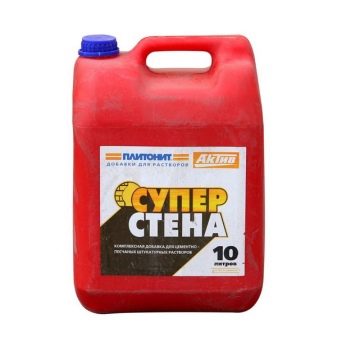
The company offers additives for semi-dry screeds, antifreeze additives, water-repellent mixtures, hardening accelerators and complex materials. The "AntiMoroz" additive makes the mortars more frost-resistant, which ensures construction work at temperatures down to -20 ° C. This variety increases manufacturability and reduces the occurrence of cracks in homemade mixtures, prevents efflorescence and the corrosion process.
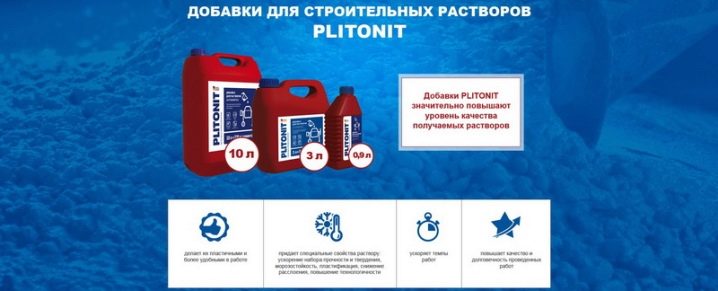
Tile care products
During operation, the tile undergoes mechanical stress, comes into contact with oils, dust, grease, etc. To eliminate these contaminants, as well as to prevent the emergence of new ones, special tile care products are used.
Plitonit offers products that can be used for cleaning:
- porcelain stoneware;
- concrete;
- paving slabs;
- polished and polished coatings;
- concrete floors and terraces.
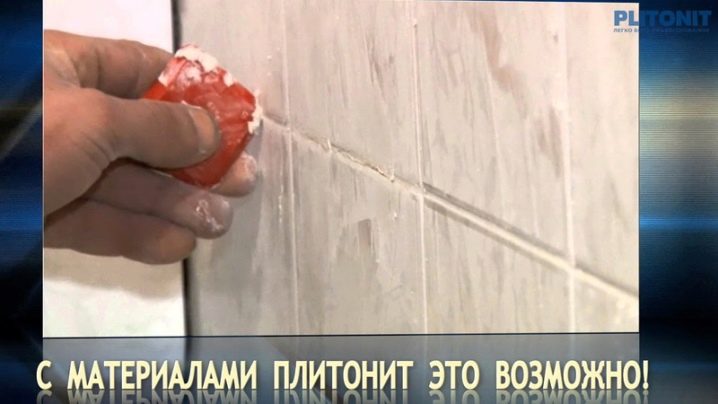
Means allow you to save tiles from such types of contamination as plaque, efflorescence, remaining adhesives and solutions, oils, rust. In addition, protective impregnations make tiles less prone to dirt, color and shine.
Building boards
Plitonit building boards are offered in Standard, L-profile, Adaptive versions. Plates "Standard" have the effect of water resistance and are intended for leveling vertical and horizontal surfaces.
Advantages:
- have antibacterial properties;
- protect against leaks and loud noises;
- suitable for the construction of decorative structures.
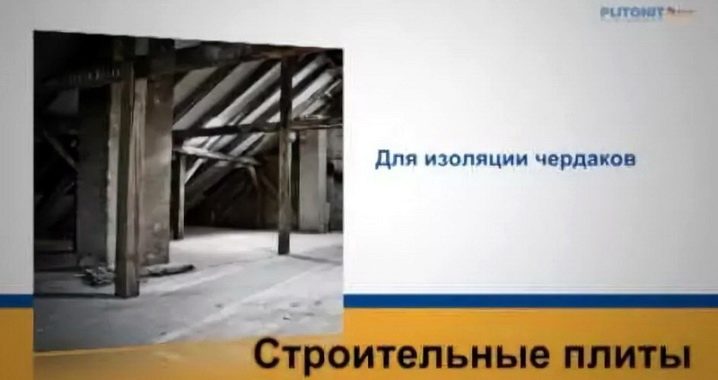
The L-profile is proposed to be used to protect communication pipes. Can be used in humid areas, including swimming pools and saunas. Suitable as a base for cladding.
Advantages:
- use inside buildings or outdoors is possible;
- suitable for vertical and horizontal pipe sheathing;
- has the effect of water resistance;
- prevents the appearance of bacteria.
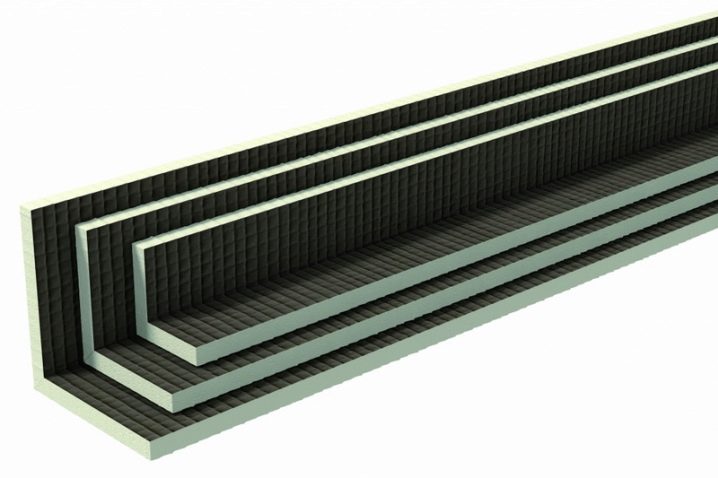
"Adaptive" is a slab with notches on one side. This is specifically made for using the slab for erecting rounded or curved parts. It is often used for cladding tubs and round pallets.
Advantages:
- it is possible to perform work in wet rooms;
- can act as a basis for cladding;
- has an antibacterial and waterproof effect;
- creates isolation from water and extraneous noise.
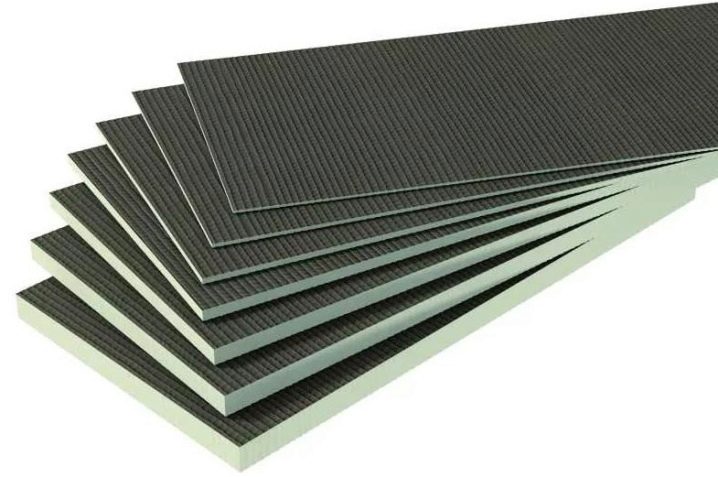
How to calculate the expense?
The easiest way to calculate the consumption when using Plitonit mixtures and solutions is using a special calculator on the company's official website. To do this, you must enter the layer thickness and indicate the area of the treated surface.
Approximate calculations:
- Plitonit glue B: with a tile length of up to 108 mm, 1.7 kg of dry mix per 1 m2 are required; with a length of 300 mm - 5.1 kg per 1 m2;
- RemSostav plaster: 19-20 kg / m2 with a layer thickness of 10 mm;
- leveler Universal: 1.5-1.6 kg / m2 with a layer thickness of 1 mm;
- primer "Primer 2 Elastic": 15-40 ml per 1 m2 of undiluted primer;
- Plitonit K putty: 1.1-1.2 kg / m2 at a layer thickness of 1 mm.
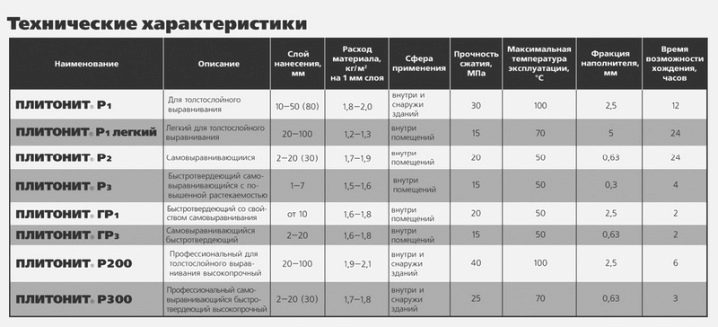
In any case, the consumption indicator will be preliminary in nature, and the true result depends on many factors, for example:
- comb selection and inclination;
- roughness of the surface;
- porosity of the tile;
- type and size of tiles;
- the experience of the master;
- air temperature during operation.
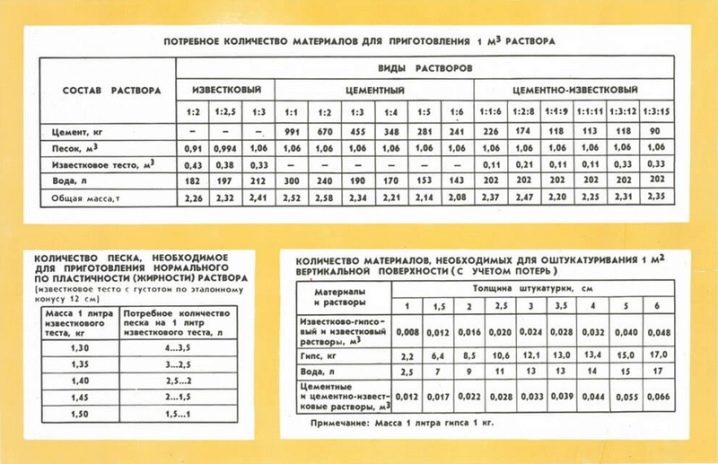
There are several formulas for calculating the flow rate. For example, to calculate how much grout is required, you can use the following formula: ((tile length + tile width) / tile length x tile width) x tile thickness x joint width x k = kg / m2, where k is the bulk density of the grout ...As noted above, all these are just approximate calculations. Whatever the result comes out, it is more reliable to take the material with a margin.

How to choose?
Equalizer
The choice of an equalizer depends on the casting area and product specifications. When working outdoors or when installing underfloor heating, it is better to pay attention to elastic cement screeds, as they are resistant to temperature changes and have a strong structure after drying. The same leveling agent is suitable for use inside buildings, but, on the contrary, the mixture for interior decoration is not allowed to be used outdoors.

Bathroom tile adhesive
It is recommended to use Plitonit B glue for tiles. It has high plasticity and is suitable for any surface, copes well with work in a humid room. Also, Plitonit B + and Gidrokly adhesives do not lag behind in reliability.
When choosing construction chemicals, consider the following parameters:
- product specifications;
- terms of Use;
- the specifics of the finishing material;
- environmental friendliness of products.
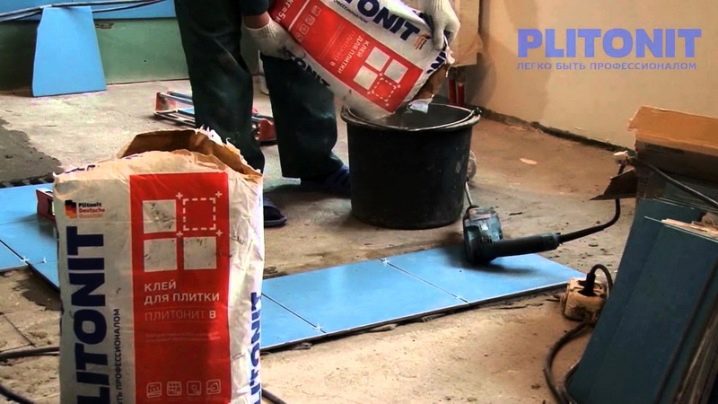
Read the opinions and reviews of users, especially professional builders, or better contact them personally, they will help you make the right choice.
Tips & Tricks
When performing work using construction chemicals, observe the following recommendations:
- follow the instructions clearly;
- observe safety measures;
- use gloves when working with chemistry;
- rinse containers and containers from solutions immediately after completion of work;
- If soil gets into your eyes, rinse the affected organ immediately and consult a doctor.
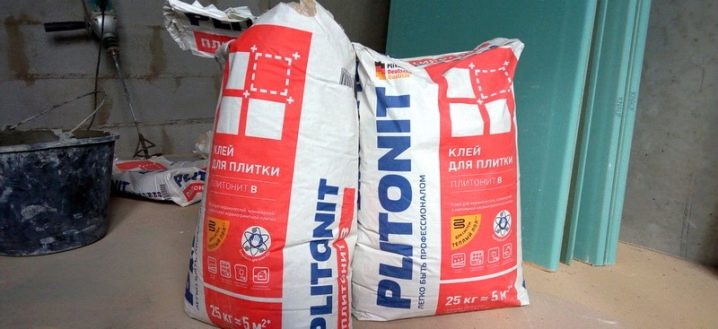
Useful Tips
- Chemistry often dries in unwanted places. If the soil has dried on a tool or wooden covering, you can apply another layer of the same soil to this area and immediately wipe it with a dry cloth, then wipe it with a damp cloth.
- Before applying the primer, you can add a small amount of tinting paste to it, this will add the shade chosen for the final finishing of the putty wall.
- According to some experts, before plastering a concrete wall, regardless of its type, it is still better to first apply a layer of deep penetration primer on it.
For how to quickly level the cladding with Plitonit, see the next video.













The comment was sent successfully.